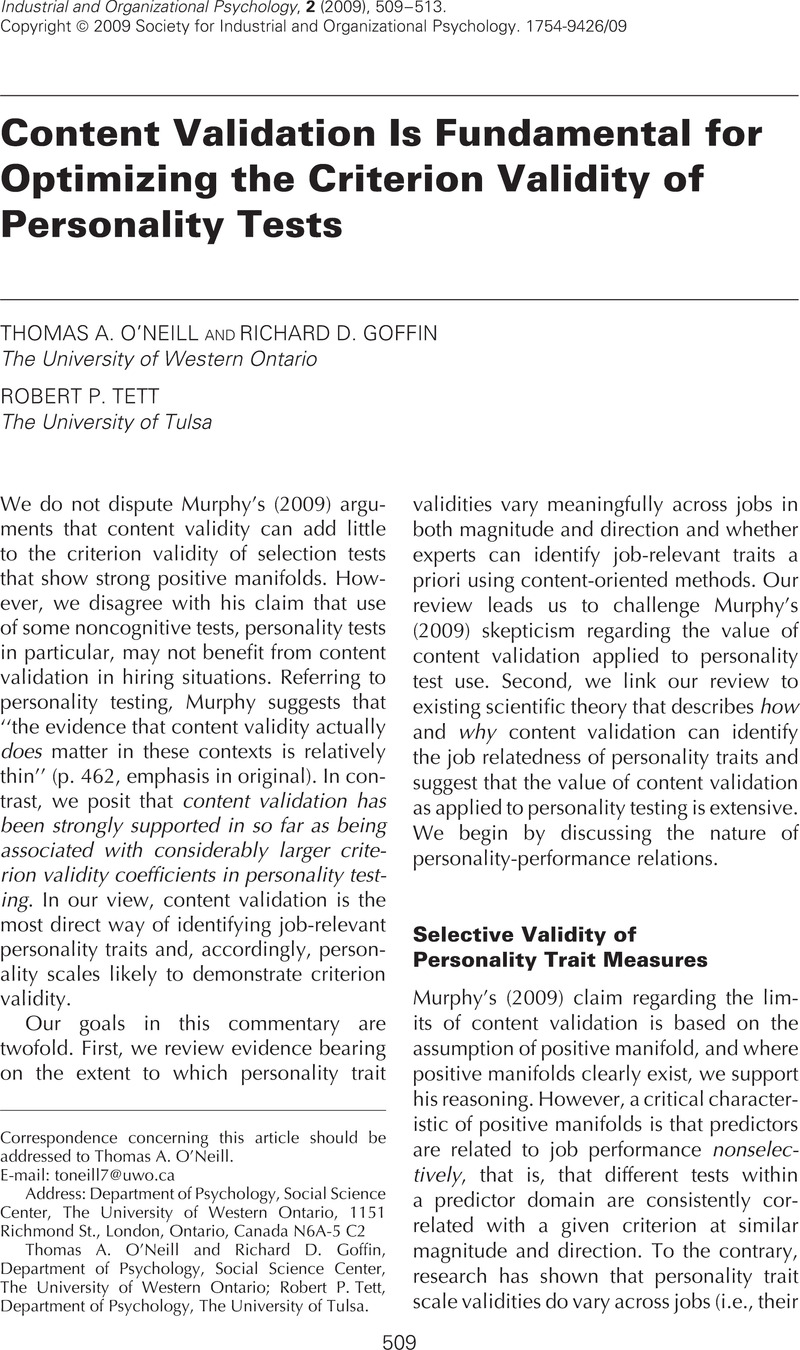Crossref Citations
This article has been cited by the following publications. This list is generated based on data provided by Crossref.
Goffin, Richard D.
Rothstein, Mitchell G.
Rieder, Michael J.
Poole, Amanda
Krajewski, Henryk T.
Powell, Deborah M.
Blake Jelley, R.
Boyd, Allison
and
Mestdagh, Tracy
2011.
Choosing job-related personality traits: Developing valid personality-oriented job analysis.
Personality and Individual Differences,
Vol. 51,
Issue. 5,
p.
646.
O'Neill, Thomas A.
and
Allen, Natalie J.
2011.
Personality and the Prediction of Team Performance.
European Journal of Personality,
Vol. 25,
Issue. 1,
p.
31.
O’Neill, Thomas A.
and
Hastings, Stephanie E.
2011.
Explaining workplace deviance behavior with more than just the “Big Five”.
Personality and Individual Differences,
Vol. 50,
Issue. 2,
p.
268.
McLarnon, Matthew J.W.
Rothstein, Mitchell G.
Goffin, Richard D.
Rieder, Michael J.
Poole, Amanda
Krajewski, Henryk T.
Powell, Deborah M.
Jelley, R. Blake
and
Mestdagh, Tracy
2017.
How important is personality in the selection of medical school students?.
Personality and Individual Differences,
Vol. 104,
Issue. ,
p.
442.
O'Neill, Thomas A.
and
Steel, Piers
2018.
Weighted composites of personality facets: An examination of unit, rational, and mechanical weights.
Journal of Research in Personality,
Vol. 73,
Issue. ,
p.
1.
Speer, Andrew B.
Schwendeman, Michael G.
Reich, Caitlynn C.
Tenbrink, Andrew P.
and
Siver, Sydney R.
2019.
Investigating the Construct Validity of Performance Comments: Creation of the Great Eight Narrative Dictionary.
Journal of Business and Psychology,
Vol. 34,
Issue. 6,
p.
747.
Fisher, David M.
Milane, Christopher R.
Sullivan, Sarah
and
Tett, Robert P.
2021.
A Critical Examination of Content Validity Evidence and Personality Testing for Employee Selection.
Public Personnel Management,
Vol. 50,
Issue. 2,
p.
232.



